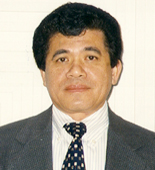|
US Immigration
|
|
|
Posted 1/28/2009 |
|
|
|
LEGAL NOTES /
By REUBEN SEGURITAN |
Options for Dependents of Non-Immigrant Workers
|
It is not uncommon for non-immigrant workers to bring their spouses and dependent children with them to the U.S. In typical households, children usually continue to stay with their parents even after reaching the age of 21.
Normally, the spouse and unmarried minor children (under 21 years of age) of the principal non-immigrant worker may apply for accompanying visas as derivative beneficiaries.
|
|
|
For example, qualified family members of H-1 temporary workers can apply for H-4 visas; dependents of intra-company transferees under L-1 can apply for L-2; dependents of those in O-1 category as persons of extraordinary ability can apply under O-3; those of R-1 religious workers can apply for R-2 visas; J-1 exchange visitors may bring in their spouses and minor children as J-2, among others.
|
For these categories, each family member must meet the visa eligibility requirement including proof that there are sufficient funds for his/her support during his/her stay in the U.S.
The authorized stay in the U.S. of a derivative beneficiary is usually co-terminus with the principal applicant, meaning that he/she will depart the U.S. when the principal applicant’s authorized stay in the U.S. ends.
Normally, the dependents are not allowed to work while in the derivative status. They can only work if they apply for and are found eligible for their own work visas.
What happens if children of non-immigrant workers reach 21 years of age and would like to remain in the U.S. to study or work?
There are several options available for them.
|
|
|
Full-time students may change status to an F-1
classification once they gain admission to an accredited
educational institution authorized to issue an I-20 form
to certify eligibility for academic study in the U.S.
Upon certification of the designated school official,
F-1 students may be authorized to work part-time for 20
hours per week while school is in session or full-time
during school breaks. They can also apply for work under
curricular practical training or optional practical
training if they meet the requirements to qualify under
these programs.
Those who intend to pursue vocational studies instead of
full-time academic and language courses may apply for
M-1 visas.
For those who decide to study college in their home
countries but spend vacation time in the U.S. with their
families, aside from the B-2 visitors’ visa, they can
also apply under the J Summer Work and Travel program as
a viable option to be able to travel and work in the
U.S. during summer breaks. This program is available for
bonafide post-secondary students enrolled in a full-time
course of study at participating accredited educational
institutions or sponsor organizations which are
pre-approved for exchange visitor programs to issue the
DS-2019 or IAP 66 eligibility forms. A list of these
sponsors can be seen on the U.S. Department of State
website.
It is important to look into and consider these options
for children of foreign nationals temporarily assigned
and working in the U.S. in order to keep family unity
intact and also to prevent the disruption of normal
family life and values once the child attains majority
age and is no longer qualified for derivative visa
status but would still want to remain in the U.S. with
his/her family to study and/or work.
|
|
REUBEN S. SEGURITAN
 has been practicing law for over 30 years and is included in the Marquis Who’s Who in American Law. A former law editor and professor, he is also the author of a book on immigrant experiences. He has spoken in international and national conventions and has been interviewed on radio and television, including the ABC Nightly News. He has participated in meetings with White House staff and the Immigration Commissioner to discuss immigration reforms. For his community service and advocacy, he has received numerous awards in the U.S. and abroad. For more information, you may log on to his website at www.seguritan.com or call (212) 695-5281
has been practicing law for over 30 years and is included in the Marquis Who’s Who in American Law. A former law editor and professor, he is also the author of a book on immigrant experiences. He has spoken in international and national conventions and has been interviewed on radio and television, including the ABC Nightly News. He has participated in meetings with White House staff and the Immigration Commissioner to discuss immigration reforms. For his community service and advocacy, he has received numerous awards in the U.S. and abroad. For more information, you may log on to his website at www.seguritan.com or call (212) 695-5281 |
|
|
|
|
|
|
|
|
|
|





 has been practicing law for over 30 years and is included in the Marquis Who’s Who in American Law. A former law editor and professor, he is also the author of a book on immigrant experiences. He has spoken in international and national conventions and has been interviewed on radio and television, including the ABC Nightly News. He has participated in meetings with White House staff and the Immigration Commissioner to discuss immigration reforms. For his community service and advocacy, he has received numerous awards in the U.S. and abroad. For more information, you may log on to his website at www.seguritan.com or call (212) 695-5281
has been practicing law for over 30 years and is included in the Marquis Who’s Who in American Law. A former law editor and professor, he is also the author of a book on immigrant experiences. He has spoken in international and national conventions and has been interviewed on radio and television, including the ABC Nightly News. He has participated in meetings with White House staff and the Immigration Commissioner to discuss immigration reforms. For his community service and advocacy, he has received numerous awards in the U.S. and abroad. For more information, you may log on to his website at www.seguritan.com or call (212) 695-5281